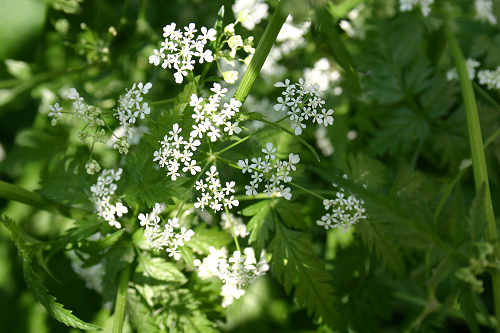A 365-Day Project
"We Are All Mozart"
A project to create
new works and change
the perception of the
music of our time.


 June 13, 2006
June 13, 2006 
Monster composer Alex Shapiro was in touch about the Composer's Guide to Nonpop's Survival to suggest five very good topics. For those who don't know, Alex is one of nonpop's artistic and marketing success stories. Visit her site and take a look at how she has given her music 'moods' and how navigation around her site leads to score excerpts and music clips, and suggestions for how to select and enjoy her music -- and her composition doesn't compromise imagination or bend before the saccharine gods of artificial accessibility.
17
Self-publish.
Self-publishing has changed the landscape for composers, increasing both responsibility and reward. Alone or with colleagues, obtain and learn notation software, publishing standards, editing techniques, and audio demo creation. (You're a composer. You can do this!) You'll give attention to detail and know your own music better -- the way performers see it and audiences hear it. Once you're in charge of your scores, handing them over to a distant, marginally enthusiastic publisher will feel archaic. Alex adds, "Composers gain financial power by retaining their copyrights, generating ongoing income from future uses of their material. And in addition to receiving 100 percent of the money for every score you sell directly (because you will have an active shopping cart on your very active website), you can easily set up myriads of distribution deals with music retailers across the country and abroad, who will give you 50 or 60 percent of the retail price and get your scores into the hands of many who you otherwise may not be able to reach."
18
Record & distribute.
Get your music around the planet. There are no more excuses. Make recordings during concerts or at a church doubling as a studio. Set up agreements with performers, or if your work is electroacoustic, get mastering under your belt. Recording equipment such as the M-Audio MicroTrack or the Edirol R-09 have made high-quality, fail-safe, memory card recording affordable, and solid software sound editors have proliferated. Full-color pro CDs (complete with UPCs) are at their lowest prices ever. Competition is high and quality is good. New music radio/cyber shows want your music.. And digital distribution is finally working well. Sites such as CDBaby actually sell recordings, and your music can be listed by Amazon or CDeMusic and distributed through iTunes or Tower Records.
19
Do the web.
The first place people look for music is online. Without a website that you create and maintain, your personality won't come through and your music will be weakly represented. Get your fingertips dirty and build a website. Offer music clips, score samples -- or even free downloads of full scores and parts or a well-stocked shopping center -- along with program notes, media bites, and photos. Suggest music your visitors might like. Your website is not a résumé (though you might post one). It's about you as a human being creating music that people want to find and play and hear. Let your visitor feel at home with you as well as making it clear and easy to find, get and use your music.
20
Plug into communities.
Here's another task for your free time: plug into worldwide music communities on the web. Even if you already live in a bustling city, remember that it's parochial. A whole world is open to you now. Know several languages? Even better! There are hundreds of genre sites, forums, blogs, groups, and networking communities that have grown beyond the older (but still alive) Usenet and listservs and even IRC. Post comments. Get linked. Set up a MySpace account or join the Orkut community. Post to NetNewMusic. Build your fan base. Don't be ashamed. Stockhausen has a fan site. So does Kaikhosru Shapurji Sorabji. Give yourself a name. A few years ago, DJ Spooky was just this college kid Paul Miller. And hey, my bubbas, when I do extended voice concerts, I'm freakin' Grey Shadé. Really.
21
Use your IP well.
Now it gets hard. Protect your music, your intellectual property, but don't become corporatized. What does this mean? Don't become a fanatic. Be picky about your music, not your rights. You have those rights the second you put down your ideas in tangible form. You know that. Performers know that. Presenters know that. So don't be a nag, passing up the gains from digital distribution out of fear of imagined losses and pirates a-plenty. (To some composers, the pirate scenario is an envious "if only!".) Join a licensing agency such as ASCAP, who are great supporters of nonpop and will take the whole performance-monitoring issue out of your hands (for example, ASCAP has been working for six years to get my unpaid performance royalties from the Montpelier Chamber Orchestra). You might consider putting some music under a Creative Commons license. You might give away free downloads while selling the convenience of paper copies and recordings. Be creative -- you're the artist.
21A: Diversion
That IP, oh that IP.
I shouldn't be so cavalier about intellectual property. It's not easy. But we're in a time of thrilling change, and we should be excited artists instead of a bunch of bantam harpies
Laurie Spiegel and I talked about this a great deal over 10 years ago, when we were on ASCAP's first internet rights committee. I wrote a followup commentary two years later, and that old rag of a 1997 essay is still up as a period piece. We proposed a "value-added" solution instead of some sort of digital rights management. (DRM really infuriates me, but I suck it up & talk gently with respect to software.)
In truth, I believe in the principle of copyright -- but not in the condition into which it's been rendered since the Mickey Mouse Act and the Digital Millennium Copyright Act. IP rights are the only ones guaranteed in the body of the U.S. Constitution (Article I Section 8). I thought it was astonishing that the authors understood the nature of shepherding creativity so well that they could create a simple, tightly phrased, time-limited monopoly.
But the recent 70- to 90-year copyright extension has trashed the idea of the arts building on each other as the overlapping time-limited monopolies expired. The law has been re-written for the protection of corporate interests and wealthy estates. Creativity arises from the commons, is borrowed from it for a time, and then returns to it -- or so the principle is articulated. But there is no commons when its participants are all dead by the time they can use what belongs to them. Disney is a particular villain here because throughout its corporate history it has plundered the common heritage of storytelling to create characters and songs that are then protected by copyright law. It exploited the commons, and then pressured lawmakers to prevent those plunderings from being rightly returned. Aboriginal artifacts are returned once provenance is shown; but corporations are relieved of such obligations for generations.
So the process of building upon previous art sinks underground, or at least out of the mainstream, unadmitted or ironically hinted, the rules flouted. The spiting of the IP legislative madness becomes an art in itself, accomplished by creative artists such as the samplers and the loopers and the DJs and the John Oswalds and the Negativlands and the illegal arts and the Free Speech for Sale.
What's to do? The market has not been effectively explored. When it comes to entertainment, people want convenience and they want to feel special, as if the artist were speaking directly to them. File-sharing sites are neither. iTunes meets the former criterion. Were I a major producer, I'd use the blog model in combination with the custom recording -- that is, making something about each download special and personal(ized) -- not just the serial number registered to your computer. (Composers who produce paper scores are not exempt from these dilemmas, as the photocopier was the original file-sharing technology.)
It does not give up a solution easily. But the future will be downloaded, so it calls for imagination. People still buy CDs and DVDs because they like 'stuff,' so what's the virtual 'stuff' equivalent? Download-choked music fans have hard drives full of worthless 'stuff'. It costs nothing, it means nothing. The music industry may count it as a loss, but it's worthless on both sides. What could make it special? Think of special edition iPods. Heck, a plain vanilla iPod is just a well-marketed mp3 player with a personality. I've got a white X-Drive instead, so I can drop in new hard drives and plug in flash cards & SD cards & memory sticks and fill it up (as it is now) with music and scores ready to edit or print. It's not special. Not chic. So where do I go for something special? Where do you? What is special enough?
Consider that intellectual property doesn't need protection against those personally invested.
The rain continued through yesterday morning. Clouds thinned, and there is a hint of sun. And then the stars appeared last night. The solstice is less than two weeks hence. The peas are up now, but with gaps. The rain got to them. The daturas haven't germinated. The weeds luxuriated in it, though: waves of lightly-rooted panicum and lambs quarters, mats of purple-flowering ajuga, ravishingly aggressive buttercups, horse-sickening cow parsley, Virginia creeper tangling the wild roses, deep-rooted wide-leaved burdocks, windflower true to the delicacy of its name, lovely and slender evening primrose preparing to bud, sweet pink marshmallows, an unexpected invasion of knotweed along the brook, discouragingly beautiful Scotch thistle, and as-yet-unblooming golden glow are all doing burstingly well.

We have a field of beautiful cow parsley, an aromatic, hollow-stemmed, invasive, non-native plant that would sicken ponies were they not too smart to eat it.